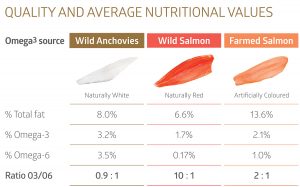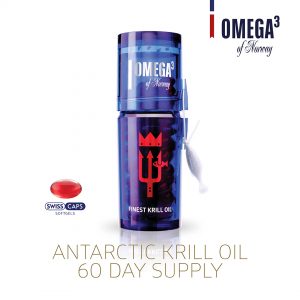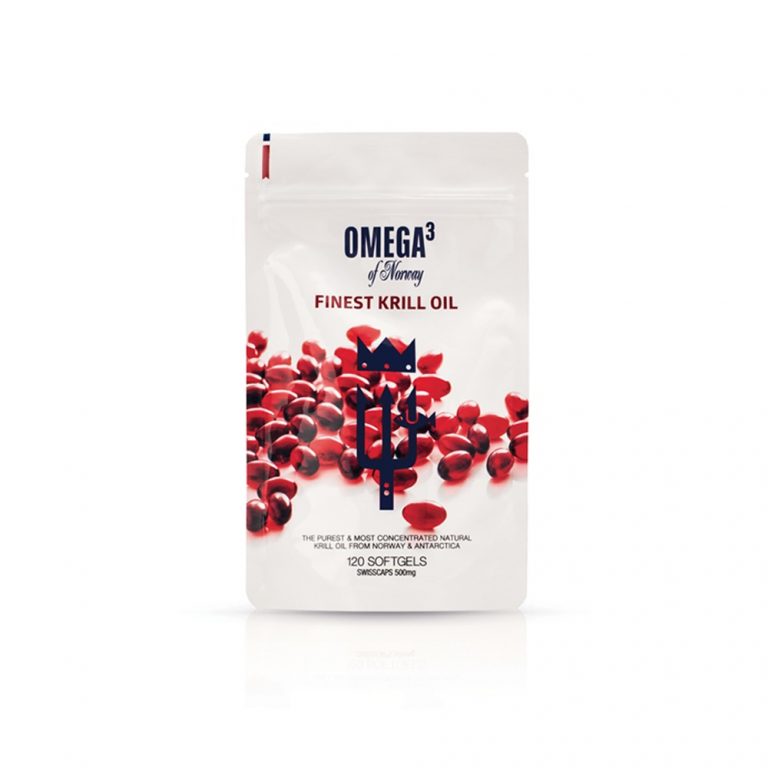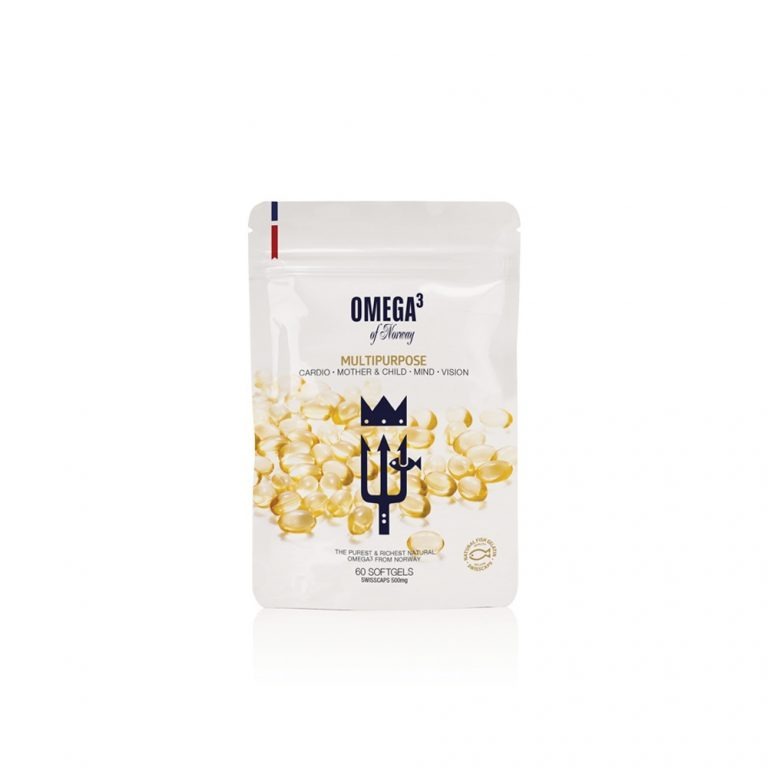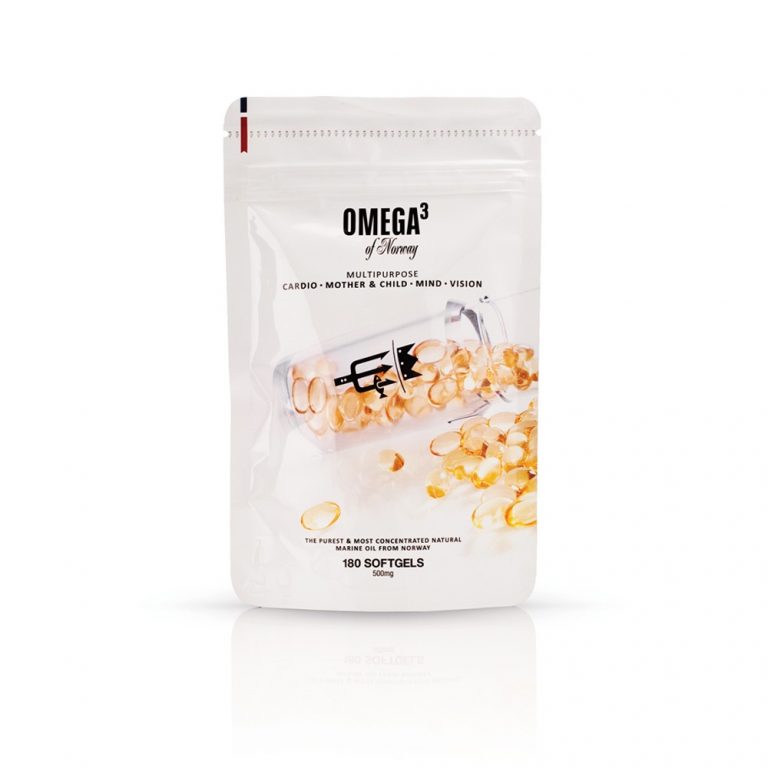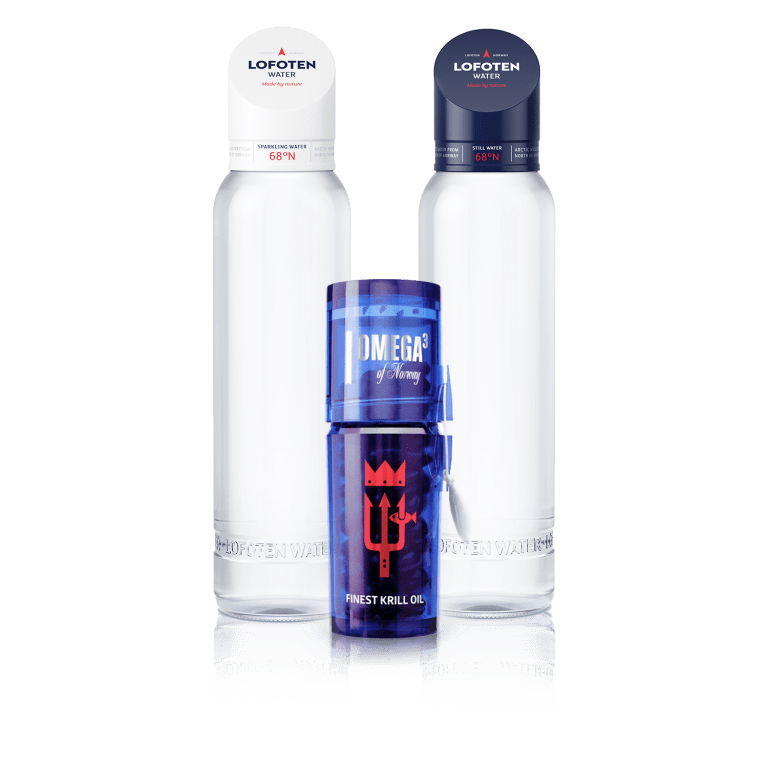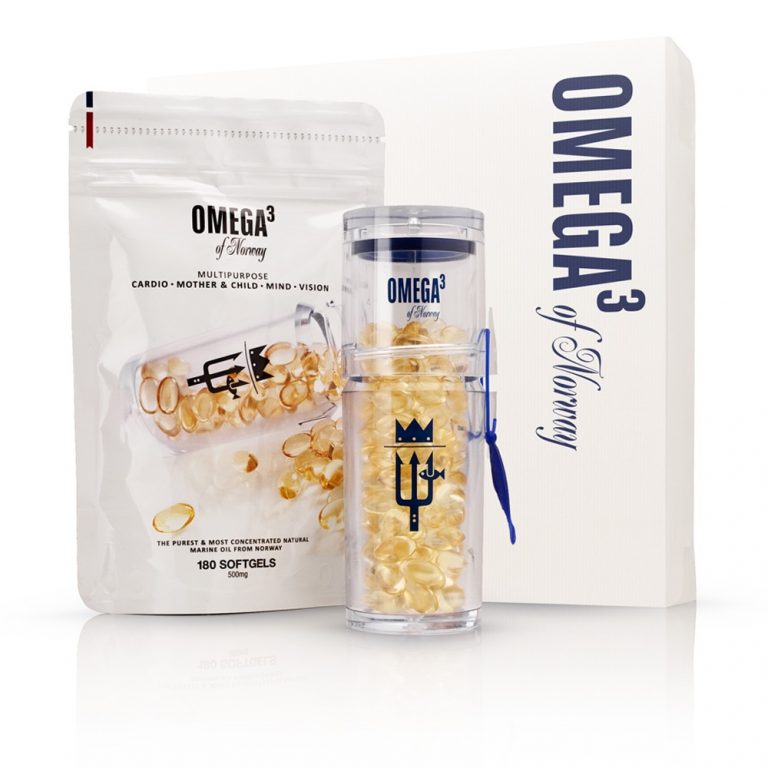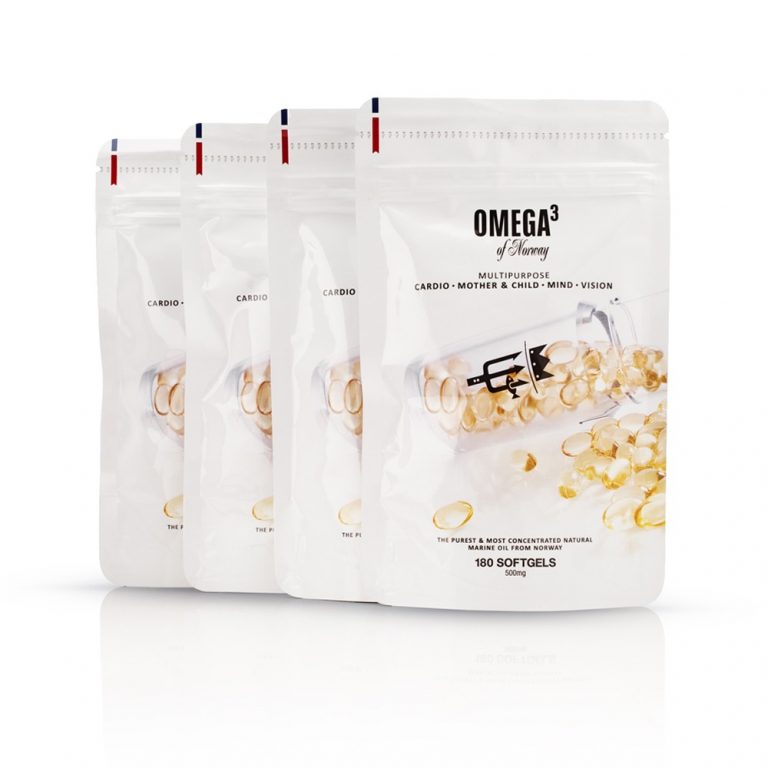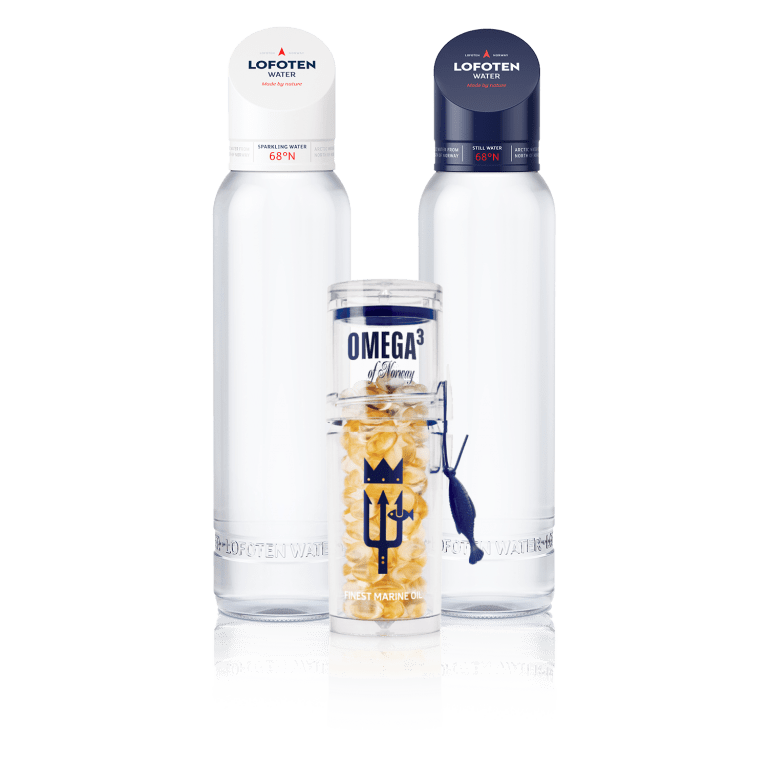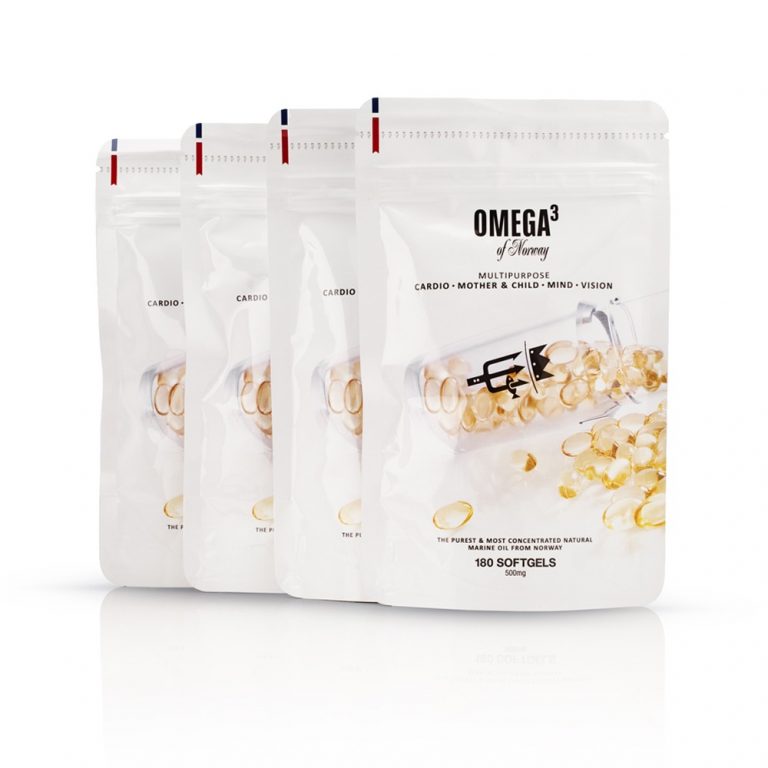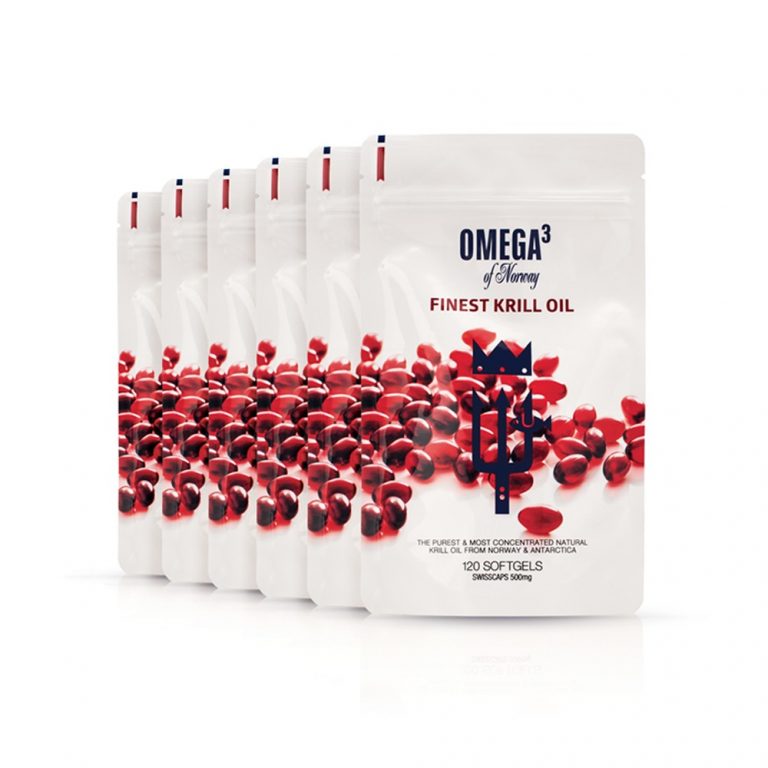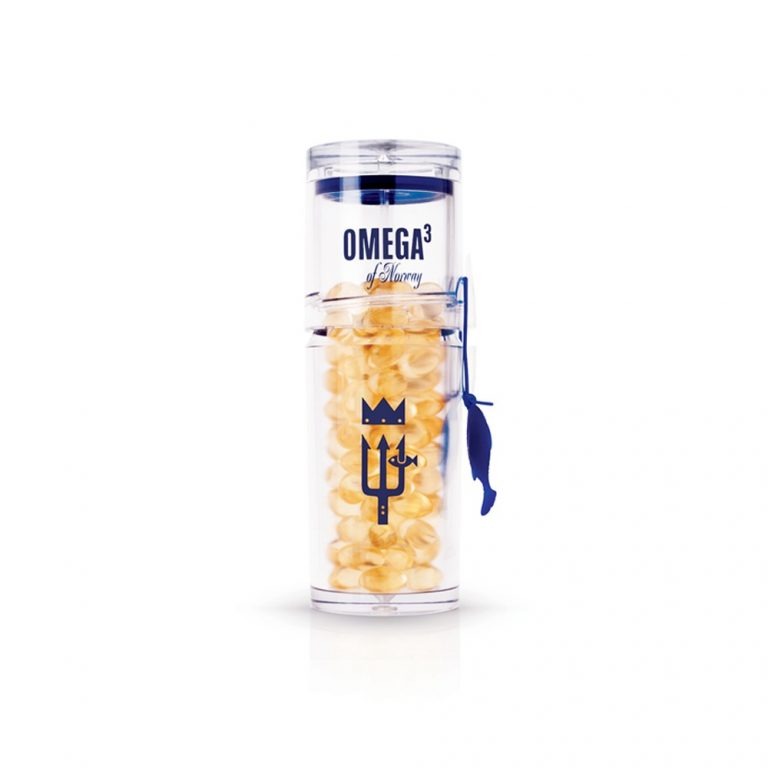We all know that omega-3 fatty acids are essential for our health and well-being. But in this case, “essential” takes on a whole different meaning. These so-called essential fatty acids cannot be produced by our body, so we rely on consuming them through food.
But what types of food? And what is the difference between marine omega-3s and those that come from plants? Is plant-based omega-3 as good as the one derived from marine sources? In this article we want to answer these questions and explain the differences between plant-based omega-3 and marine omega-3s.
Not all fats are equal
We generally think of fats as something we should try to avoid in our diet. But that’s simply not true. There are many types of fats out there and many of them are actually very important for our survival. Some of the most well-known and best researched ones are called omega-3 fatty acids, which are often found in food supplements called fish oil or krill oil.
What are omega-3 fatty acids?
There are several types of these fatty acids but in this article, we will focus on three called ALA, EPA and DHA. These fats are responsible for supporting many important processes in our metabolism from our immune system to our brain. They play different roles in different stages of our life, but it is safe to say, that even before we are born, omega – 3s play an important role in our physical and mental development and health. Here we wrote an article about the importance of EPA and DHA during pregnancy and early childhood to show, that those fats indeed are essential for our development and thriving.
The benefits of omega-3 fatty acids
Some other health benefits of omega-3 fatty acids include regulating blood lipid levels and therefore potentially reducing the risk for heart disease and heart attacks. They have also been shown to play an important role in strengthening our immune system, make our skin more resistant to UV rays and can even help athletes to train better and their muscles to recover faster (https://norwayomega.com/blog/the-top-5-benefits-of-omega-3-for-athlete/).
Especially DHA is important for the development of our brain and eyes during early development. Almost 60% of our brain consists of fats, 40% of which is DHA. This illustrates quite well; just how important these fatty acids are for our mental and physical well-being. Furthermore, omega-3 fatty acids have been shown to have an impact on mental health and have even been investigated in relation to improving moods in patients with depression. (https://norwayomega.com/blog/omega-3-and-mental-health/)
Differences between plant-based omega-3 and marine omega-3
Now, let’s explain the differences between those mysterious abbreviations we have mentioned above. ALA is an omega-3 fatty acid that is found in plant-based foods like walnuts, chia seeds, flax seeds and soya beans or its products like tofu. ALA stands for alpha-linolenic acid and is a shorter polyunsaturated fatty acid than its marine counterparts EPA and DHA.
EPA stands for eicosapentaenoic acid and DHA for docosahexaenoic acid. Those are marine omega–3 fatty acids, which means that they are mainly found in animals and plants that live in the sea. So, the first difference between is the source of these omega-3s
Fish vs plants – the different sources of omega-3
The most prominent source of EPA and DHA are fatty, cold – water fish like salmon, anchovies and mackerels for example. It depends greatly on the type of fish you eat, whether you will consume sufficient amounts of omega-3 or not. Not all fish contain abundant amounts of omega-3, so it is important, that you do your homework beforehand. These omega-3 fatty acids derived from fish are commonly referred to as omega-3 fatty acids in the context of food supplements. Most omega-3 supplements nowadays are called fish oil because they are made from the tissue of those fatty fish.
Krill – the newest supplement
However, in recent years there has been a new addition to the club: krill oil. Like the name implies, this supplement is made from krill, a small crustacean that lives in massive swarms in our oceans. Next to EPA and DHA, the oil that is made from them also contains the antioxidant astaxanthin, which gives krill an added health-boost and its red colour. Krill oil shares most of the health benefits of traditional fish oil supplements, with some added benefits because of the antioxidant it contains.
Both krill and fish oil contain EPA and DHA, however, it is important to check the concentration on each different type and brand of supplement to buy to make sure, you get a high-quality product. So, the main difference between omega-3 fatty acids from plants or from marine sources, is that they are not the same type of fat. They are different molecules with different structures and effects on us.
Which one is better?
While all omega-3 fatty acids are important, research shows that they are not equal in their benefits. There is evidence that suggests, that the impact of EPA and DHA on heart health is stronger than that of ALA. This means that they seem to have a greater impact on reducing the risk of coronary heart disease, cardiac death and heart attacks.
They appear to also be “better” at lowering triglyceride levels in our blood and regulating blood pressure, both factors which can reduce the risk of heart attacks. There is also strong evidence supporting the effect of EPA and DHA on cognitive health, pre-natal and maternal health as well as eye health benefits. ALA has been shown to not have quite the same depth and spread of benefits in comparison with EPA and DHA, so it is important to ensure, that we get enough of those marine omega-3s.
Low conversion rates for ALA
The shorter ALA is a polyunsaturated fatty acid than EPA and could be considered the only properly “essential” one of the three. Because our body can synthesize EPA and DHA out of ALA with help of a specific enzyme, ALA is the only omega-3 fatty acid that we really rely on consuming through food. The downside of this however is, that the conversion process is very inefficient. It is therefore often recommended consuming EPA and DHA directly to get more benefits of these fatty acids.
The conversion rate for EPA from ALA is 5 % and only 0.5 % for DHA which makes it difficult to generate sufficient amounts from ALA alone. This conversion depends on a lot of different factors like gender, age and what other types of fats we consume. If we consume a lot of omega–6 fatty acids for example, these fats can act as competition and take up enzymes, that would normally work on converting ALA to EPA and DHA.
Omega-6 and omega-3 balance
The imbalance between omega–6 and omega–3 is a general problem in our modern Western diet, which is strongly in balanced towards consuming too much omega–6. What this means and why we should try to avoid such an imbalance, you can find out in this article.
Conclusion
ALA, EPA and DHA all are important omega-3 fatty acids that should not be missing in anyone’s diet. However, consuming EPA and DHA directly from marine sources is more efficient than relying on ALA – conversions, because this process is not very efficient in our body.
With omega-3 fatty acids being so healthy for our heart, we should really work towards meeting your daily requirements on a regular basis. And this does not have to be complicated. While there are many foods that contain abundant amounts of omega-3 taking a supplement can often be the most straight-forward solution. Taking a few capsules of fish oil or krill oil a day ensures that you hit your omega-3 needs and support your body in being the healthiest it can be.
Sources
https://www.abouthealth.co.nz/blog/post/marine-omega-3-vs-plant-omega-3-whats-difference.html
https://www.abouthealth.co.nz/blog/post/marine-omega-3-vs-plant-omega-3-whats-difference.html
https://www.pcrm.org/news/blog/get-omega-3s-plants-not-fish-oil



